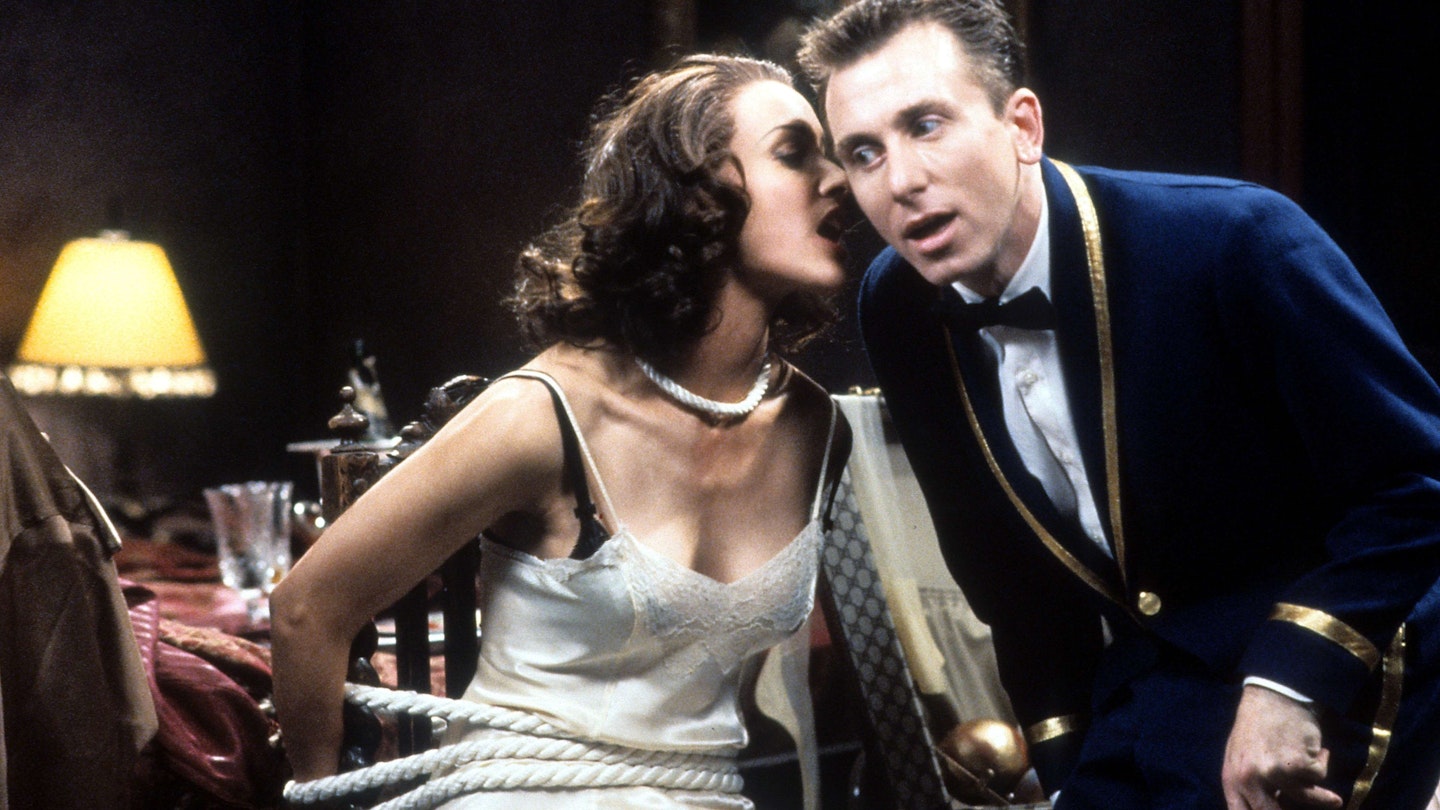Oh dear. It must have seemed like a very good idea at the time. Take four hip young directors. Let them loose on a vanity project in which they each write and direct a segment - a room - of a film set in a hotel on New Year's Eve. The result? A dull, largely pointless, mostly boring exercise that begins badly, tests your patience as well as your endurance, and proves that all that Tarantino touches doesn't turn to gold. The four stories are linked by Ted the bellhop (an annoying Roth, like the worst aspects of Jerry Lewis) who is left alone for the evening to man the front desk.
It begins very badly indeed with Honeymoon Suite: The Missing Ingredient, directed by Allison Anders, in which Valeria Golino, Madonna, Sammi Davis, Lili Taylor and Ione Skye are a coven of witches determined to resurrect the spirit of the goddess Diana and reverse a spell that was perpetrated on her wedding night. To the ceremony each must bring a life fluid; only Skye swallowed hers (use your imagination), and so has to procure the missing ingredient from Roth's initially reluctant bellhop. It's a spiritless piece, tedious, lifeless, symptomatic of the film as a whole.
It quickly goes from bad to worse with Room 404: The Wrong Man, directed by Alexandre Rockwell, the most pointless segment, certainly the most prosaic, with Roth involved in a dispute between a bound and gagged Jennifer Beals and her gun-toting husband. Things pick up considerably with Room 309: The Misbehavers, directed by Robert Rodriguez, starring Antonio Banderas as a Mexican gangster who leaves his two children in the care of Ted with the strict instruction 'Don't misbehave.' They do. And it involves cigarettes, a dead hooker, a hypodermic, and fire. It's a one-joke skit but Rodriguez's frenetic comic book style lifts the picture, only for it to implode with Penthouse: The Man From Hollywood, directed by Quentin Tarantino, which comes across as a major ego exercise for its director, playing a famous comedian who offers Ted $1,000 to chop off his pal's finger if he loses their bet. The story owes a debt to Roald Dahl, who gets a name check in the credits, but lacks any sparkle or wit.
